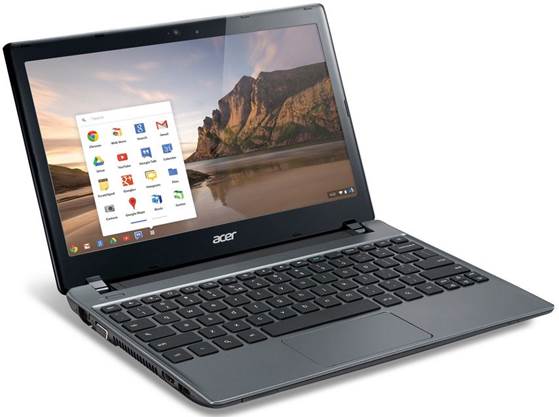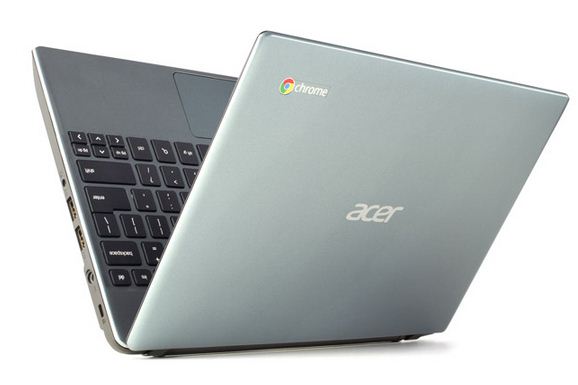Android laptop
Here's a succinct list of things the
Chromebook is not: a laptop, a netbook, a tablet. So what is it?
Acer's C7 Chromebook sits in a position of
its own in the market, as a cloud-based computer that is not quite laptop and
not quite netbook.
I got the C710-842G32ii model to review and
my first impression, before even hitting the power button, was that the device
was a bit heavier than you would expect from such a slim computer (2.7cm),
weighing 1.38kg.
The 11.6 inch computer- I'll keep resisting
the temptation to call it a laptop runs the cloud-based Chrome OS and, as such,
needs a Wi-Fi connection to actually become useful. If we were in a different
country, that would be okay. But we're in New Zealand, and public Wi-Fi
networks aren't everywhere when they are, it's usually at a cost. The
Chromebook's lack of mobile (3G/4G) connectivity means the computer is limited
in its capabilities in a lot of places you'd take a computer to. That said, you
can do some work offline and then have it all synchronize next time you're
connected to the internet but, with that, the Chromebook loses a bit of what
makes it truly unique (and that's something a 3G/4G option would easily fix).

The
Chromebook's lack of mobile (3G/4G) connectivity means the computer is limited
in its capabilities in a lot of places you'd take a computer to.
The screen has a pretty decent 1366 x 768
'HD capable' resolution, which means it can natively play 720p video. Battery
life is pretty good, with the device lasting a good four or five hours,
depending on what you're using it for. The battery charger is worth a mention:
it's almost as small as a cell phone charger, which means it won't take up much
room in your bag (if you're me, that's pretty important).
The keyboard, however, is the part of the
hardware that lets the computer down. It feels a bit clunky and the short key
travel isn't very comfortable and kept making me want to double check if I'd
actually hit the key. Mac users will quickly adjust to the Chromebook trackpad
as it uses much the same movements, including the two-finger swipe. It's fairly
responsive and accurate.

The
screen has a pretty decent 1366 x 768 'HD capable' resolution, which means it
can natively play 720p video.
The computer runs on a 1.1GHz Intel Celeron
847 processor, has 2GB of RAM, and a 320GB hard drive. The hard drive has a
whole lot more space than I expected a cloud-based device to have (especially
if you consider that it also comes with 100GB of free storage in the cloud for
two years) but the downside is that it's not solid-state, so you can't chuck
the Chromebook around so much as a tablet or an SSD-based Ultrabook.
There were no issues with performance and
the Google apps I was already used to working with functioned just fine. The
operating system itself has a nice minimalist look and feel about it, and is
not so different from other operating systems that it would confuse someone
unfamiliar with Chrome.

There
were no issues with performance and the Google apps I was already used to
working with functioned just fine.
I will admit I had slightly higher
expectations for the Chromebook, but that's really my fault, nothing to do with
the device itself For $429, it's not a must-have and it's not really strong competition
against any well-priced laptop out there, but I would not make fun of you if
you bought one. I'd probably ask you why you didn't buy a tablet with a
keyboard dock or sleeve, though.
|
At a glance
·
111.6-inch 1366 X 768-pixel screen
·
Cloud-based Chrome OS
·
320GB hard drive + 100GB of cloud storage
·
1.1GHz Intel Celeron 847 processor
Acer C7 Chromebook (C710-842G32ii)
·
RRP incl GST: $429
·
Contact: acer.co.nz
·
3/5
·
Acer's Chromebook is a good portable device
but is not about to crush the competition.
|